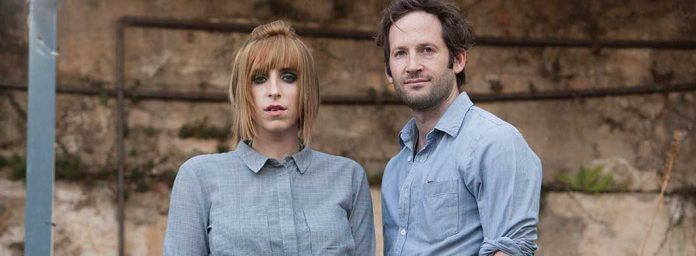The 25th annual South African Music Awards ceremony was held at the Sun City Arena on 1 June. The list of SAMA nominees was announced on April 25 — during Pesach — and what made this nominee list different from all other lists, was the inclusion of Breindy and Matt for best alternative album.
“It’s wonderful to note the diversity that is being celebrated at the SAMAs. To our knowledge, this is the first time that Jewish Hebrew music has been recognised at the South African Music Awards. Our music is deeply steeped in our wonderful tradition and it’s uplifting to note this positivity coming out of our community” said Matt.
Their music could be described as Ancient-Hebrew, Indie-Alternative, but just like the pair behind the melody, it fearlessly challenges definitions. Originally from two completely different backgrounds — Breindy, a rabbi’s daughter, Matt having grown up in a secular home — the music they make has its roots in Biblical texts, yet takes shape in a sound that is both ethereal and contemporary, experimental and traditional.
When the CJC chatted to Matt after the award ceremony he said that it was “an honour to be nominated together with the exceptional musicians in our category and just to be in that kind of company has given us the excitement and enthusiasm to start new projects and make more music. Of course, we’ve never made music with awards in mind, so we’re grateful to the SAMAs for giving us that bit of recognition and encouragement to keep moving forward.”
Both Wits Music graduates, in 2011 the duo joined forces to collaborate on Hallelukah, their debut album which set in motion a creative partnership over seven years ago. They have since gotten married, had two children and explored many different musical worlds and sound experiences. Now they are proud to present Ruth Ave — a follow up album which encapsulates the colours and moods of a journey that has been traversed together through the different phases of their lives, in their Johannesburg studio and home, on Ruth Ave.
We got to know them a little better:
How did you guys get into the music business?
Matt: Breindy and I met one Friday night. It was at a friend’s Shabbos table and we started talking about recurring dreams. Breindy had by then written many of her own songs and I was at the time running a small record label. I told her to come and show me her music, which she did a week or two later. I was very excited, and we signed a record deal. We started working in studio together and ten months later released our debut album Hallelukah. A month after that we got married.
Your style is quite unique; can you describe it for us?
Lyrically we draw inspiration from our ancient texts which we sing in the original Hebrew. Besides the language having such a beautiful sound, it’s also the timelessness of the words and the multi-layered depth of meaning contained in them that resonated deeply with us.
Breindy: One thing I remember feeling after we completed our first album is that I wanted our next one to have more of a special focus on the piano. I think we did achieve that with Ruth Ave, and I’m also delighted that we got to work with amazing musicians on cello, French horns and trombone. The sounds of those instruments really helped shape our sonic identity for this album.
Breindy and Matt: What’s wonderful about being an independent project is that we aren’t beholden to anyone when it comes to what we sound like, the songs we write and our production style. We try to let each song guide us, whether that means exploring an organic sound-world or venturing into some electronica. Of course we always love to celebrate the uniqueness and mystique of the human voice in our music and that often comes to the forefront.
Matt: Sigur Rós meets Beck meets The Shins meets Shlomo Carlebach. Then one day they all meet the Modzitze Rebbe.
Are there any challenges working with your partner? If so, how do you work around them?
The biggest challenge is separating our music from our everyday lives. This album was made at home, in-between life — or did everything else happen in-between the album? I’m not sure. Everything feels intertwined. There’s the practical issues of completing each stage of the project while juggling kids and other work, but at the end of the day being able to share the experience of creating together with each other is a privilege unlike any other, and we couldn’t imagine not having this aspect of our lives to live through together.
Do you work around issues of Kol Isha?
We adhere to the guidelines of Kol Isha and perform only for women.
Tell us about your SAMA nomination?
We feel humbled and privileged to be contributing to the diversity of South African music. At the same time of course we’re thrilled that this project into which we’ve invested so much of our hearts and souls is being recognised. It’s been very encouraging and we feel a renewed strength to keep trying to bridge the gap from what one perceives Jewish music is to what else it could be.
What are you working on at the moment?
Well we’ve spent the greater part of the last four years locked away in studio barely seeing the light of day. We’re now having lots of fun getting back into our live shows again.
When will you be in Cape Town to perform again?
Invite us for a show and we’ll be there!











